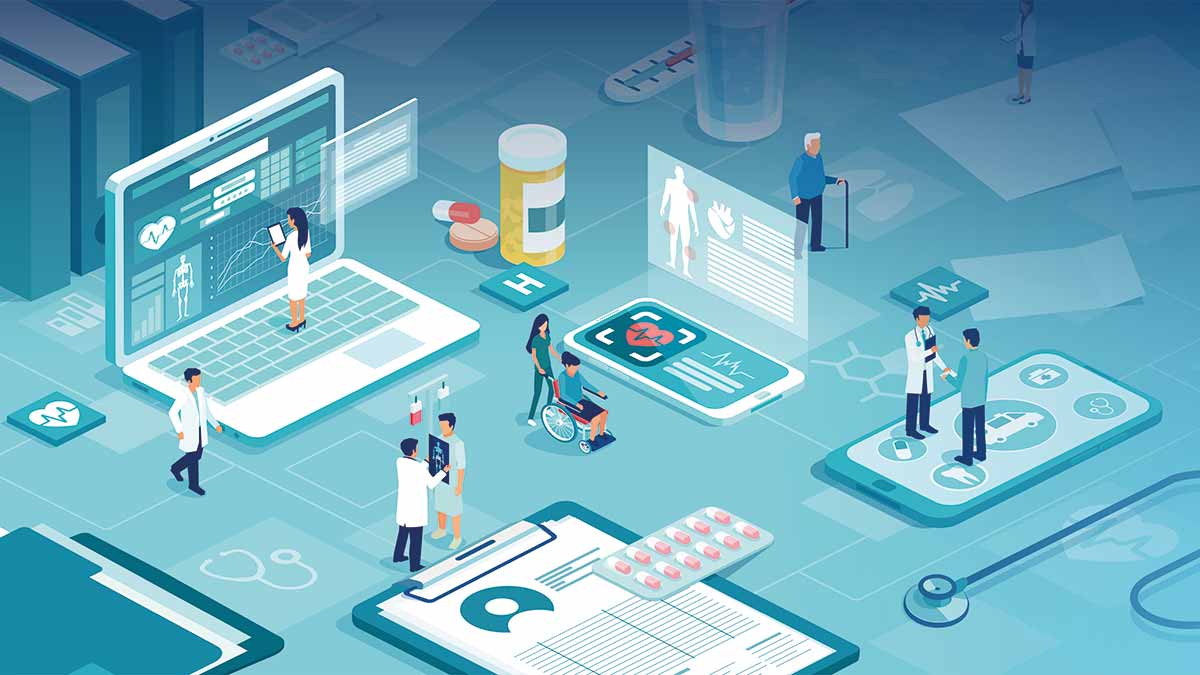Summary
AI predictive healthcare solutions, such as Heaps.ai by Suman Katragadda, analyse patient data to forecast recovery deviations and enable timely interventions. This proactive approach improves patient outcomes,
Source: The Week

AI News Q&A (Free Content)
Q1: How is AI predictive healthcare transforming post-discharge care and improving patient outcomes?
A1: AI predictive healthcare, such as the solutions provided by Heaps.ai, plays a significant role in post-discharge care by analyzing patient data to anticipate potential recovery deviations. This proactive approach enables healthcare providers to intervene timely, thereby enhancing patient outcomes and reducing readmission rates. Predictive analytics in healthcare utilize AI to process large datasets, which can include medical histories, lab results, and imaging, to forecast disease risks and personalize treatment plans.
Q2: What are the ethical challenges associated with the integration of AI in healthcare?
A2: The integration of AI in healthcare raises several ethical concerns, including data privacy issues, potential job automation, and the amplification of existing biases in healthcare settings. The lack of transparency and explainability in AI systems can lead to mistrust among healthcare providers and patients. Efforts are being made to incorporate explainable AI to enhance trust and ensure that AI systems are both transparent and interpretable.
Q3: In what ways has AI predictive analytics impacted healthcare operations and patient care efficiency?
A3: AI predictive analytics has significantly improved healthcare operations and patient care efficiency by enabling more accurate and timely disease diagnosis, optimizing treatment plans, and predicting patient admissions. These advancements help healthcare professionals in managing patient care more effectively and in reducing unnecessary hospital readmissions. The use of predictive analytics tools has shown to reduce readmission rates by 10% to 20% in some instances.
Q4: What are the barriers to the widespread adoption of AI in healthcare, and how can they be overcome?
A4: The widespread adoption of AI in healthcare faces barriers such as technical challenges, resistance from healthcare leaders, and the need for significant workflow adjustments. To address these issues, healthcare systems must prioritize user experience, ensure robust testing of AI applications, and provide ongoing education and support to healthcare professionals. Furthermore, addressing ethical concerns and ensuring data privacy are crucial for gaining trust and acceptance.
Q5: How does FairGrad address fairness concerns in healthcare AI models?
A5: FairGrad is a novel gradient reconciliation framework designed to balance predictive performance and fairness in healthcare AI models. It resolves conflicting optimization objectives by projecting gradients onto orthogonal planes, ensuring equitable consideration of all objectives. FairGrad has demonstrated improvements in fairness metrics while maintaining competitive predictive accuracy, thus harmonizing fairness and utility in healthcare AI applications.
Q6: What are some real-world applications of AI predictive analytics in healthcare?
A6: AI predictive analytics is used extensively in healthcare for applications such as diagnosing diseases, personalizing medicine, predicting drug side effects, and anticipating disease outbreaks. These tools help healthcare professionals by providing insights that enhance decision-making, optimize resource allocation, and improve patient care outcomes. The integration of AI with healthcare workflows allows for better understanding and management of patient care.
Q7: What are the potential benefits and limitations of AI-driven clinical decision support systems in healthcare?
A7: AI-driven clinical decision support systems can improve the accuracy and efficiency of clinical decision-making by providing evidence-based recommendations. These systems are particularly beneficial in imaging referrals and laboratory testing. However, their implementation faces challenges such as technical issues, integration with existing workflows, and user acceptance. Addressing these challenges requires a focus on user experience, continuous monitoring, and adaptation of the systems to local needs.
References:
- Artificial intelligence in healthcare
- Explainable AI meets Healthcare: A Study on Heart Disease Dataset
- AI-Driven Healthcare: A Review on Ensuring Fairness and Mitigating Bias
- Challenges and insights from implementing clinical decision support systems for radiologic imaging: experience from the MIDAS trial
- AI predictive analytics in healthcare
- AI predictive analytics in healthcare
- The transformative impact of AI predictive analytics on healthcare





